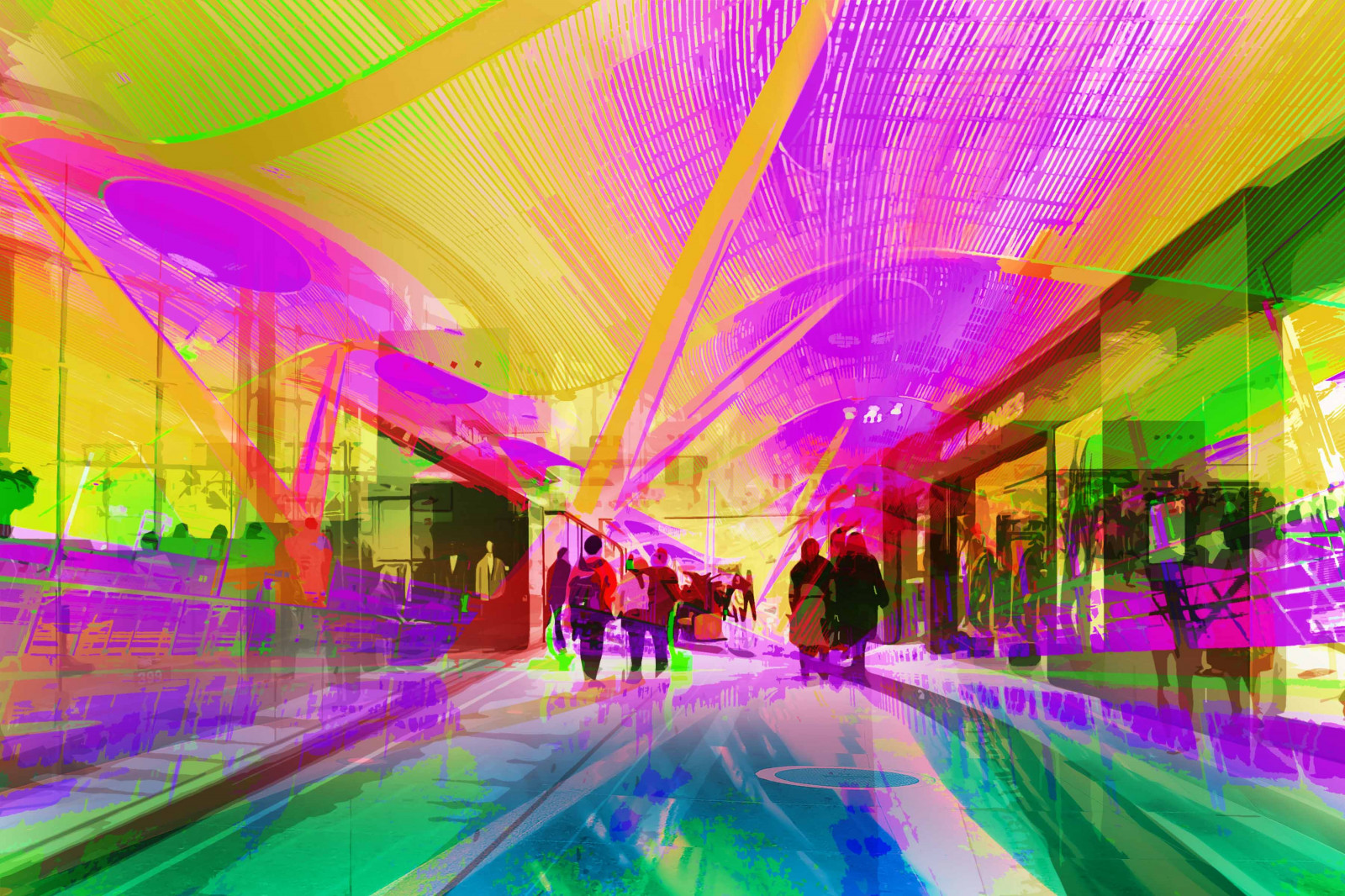Normally, our minds are uneven. This means that we think some things are important and some things are unimportant! We think that some directions are good directions to look in, and others are not good directions to look in. Some things are useful, other things are not useful. Having an uneven attitude like this means that we have already made up our minds about things. It means that we have already come to some sort of conclusion, even before we start looking, and this means that we are not actually looking at all…
When I take an interest in things only on the basis of what I think I already know, then this is uneven interest (or uneven curiosity), and uneven curiosity is not curiosity at all. When my mind is uneven then I am inherently prejudiced – I am closed to stuff that I do not expect, closed to stuff that I do not already know about.
An uneven mind is an insensitive mind. It is insensitive because it is only looking in a certain direction, and only looking for a certain sort of an answer. By being sensitive only to stuff that I have decided in advance that it is worth being sensitive to, I make myself insensitive to everything else – I make myself insensitive to what I don’t know about. In other words, this sort of one-sided (or closed) sensitivity is actually a form of ignorance.
Another way to explain this is to say that having an uneven mind is like the situation where I am watching a particular rabbit hole waiting for the rabbit to come out. By being so (selectively) sensitive to that one hole (and the rabbit that I think will come out of it) I have made myself profoundly insensitive to anything that is not the hole (and not the rabbit). Suppose it is the wrong hole I am watching? Suppose the rabbit isn’t down a hole at all? Suppose it isn’t a rabbit I need in the first place, but something else? Suppose rabbits have nothing to do with it – suppose rabbits aren’t the answer? Suppose something else is the answer?
The cure for unevenness isn’t to stop watching one rabbit hole and start watching another, because that is still being uneven. The cure isn’t to keep searching for the ‘right rabbit hole’, which is still a prejudiced attitude, but to abandon prejudice (i.e. mental unevenness) altogether. But how do we do that?
One way to do abandon prejudice is through the ‘open mind exercise’ which we will now describe. Normally we pay attention in a selective way, but for the ten-minute duration of the open mind exercise the idea is to pay attention in a non-selective way. The point is that when we practice this exercise everything is the rabbit hole – there is nothing that is not the rabbit hole!
What this means in practical terms is that we sit still for ten minutes and pay equal attention to whatever comes along. Whatever thought, feeling, memory, sight, sound or smell arises – that is what we pay attention to. For the duration of this exercise there is no such thing as important / unimportant because everything is equally important. There is no such thing as ‘right’ or ‘wrong’. The point of the open mind exercise is to cultivate unprejudiced awareness and in order to do this all we need to do is to pay attention to where we are right now, and whatever it is that is going on right now.
There is no ‘goal’ in this because a goal means something special, a goal means ‘unevenness’ – important / unimportant, hit / miss, right / wrong. All that is needed is to be a good listener, which means that I am patient and I am ‘there’. There is no need to anticipate what is going to happen because anticipating what is going to happen gets in the way of what is happening. So all I do is sit there quietly noticing what is happening.
But suppose nothing is happening? Suppose I am sitting there listening to nothing – isn’t that boring and pointless? Nothing means silence and silence is only boring because we have never truly listened to it. When we do take the time to listen to it we discover that silence isn’t dead and sterile, it is alive and creative. When we listen patiently to silence we find that the silence grows in size and in richness – it becomes dark like velvet and full of possibilities. It becomes bigger than we are, it becomes something that we can lose ourselves in.
Losing ourselves in silence is the same thing as infinite sensitivity, it is the same thing as ‘pure listening with no mental commentary on what we are listening to’. It is the same thing as ‘being open’. When we truly hear silence we are in touch with the life that is in all of us, like a source of pure spring water that is constantly fresh and constantly new.
In practice, however, what we tend to notice first in listening is staleness and oldness, rather than freshness and newness. This is because the first thing that we notice when we start to become more sensitive is our own insensitivity – we become sensitive to our insensitivity and that doesn’t feel good! This is the reason why we don’t usually like quietness – it isn’t really that it is ‘boring’, it is something else, something uncomfortable and strange, possibly disturbing. It shows us an ‘inner desert’. Usually, we don’t know why we don’t like it, and we don’t really want to hang around to find out. This inherent lack of curiosity is what keeps us locked up in our own minds, and this is why it is so extraordinarily helpful to be aware of it.
The more we are willing to look at that terrible inner desert (which is the desert of our own lack of inner sensitivity, the desert of our own lack of actual awareness) the more that desert is ‘fructified’, as Jung puts it. The frighteningly arid desert of our own inner state is moistened (and rendered fruitful) by the very act of becoming aware of it, as we read in in paragraph 190, Mysterium Coniunctionis –
If you will contemplate your lack of fantasy, of inspiration and aliveness, which you feel as sheer stagnation and a barren wilderness, and impregnate it with the interest born of your alarm at your inner death, then something can take shape in you, for your emptiness conceals just as great a fullness if only you will allow it to penetrate into you. If you prove receptive to this “call of the wild,” the longing for fulfilment will quicken the sterile wilderness of your soul as rain quickens the dry earth.
Our inner desert comes to life when we summon the courage to gaze upon it. Or to put this another way, the more willing we are to notice how appallingly unfree and impoverished our inner life is, the more we stand to benefit in terms of increased mental spaciousness and freedom!
What could be more valuablethat mental spaciousness, or mental freedom? What could be worth more than this? Without mental freedom even the most wonderful situation can be no good to us. With mental freedom even the most terrible situation will be to our advantage.
Image – inspiringcity.com






